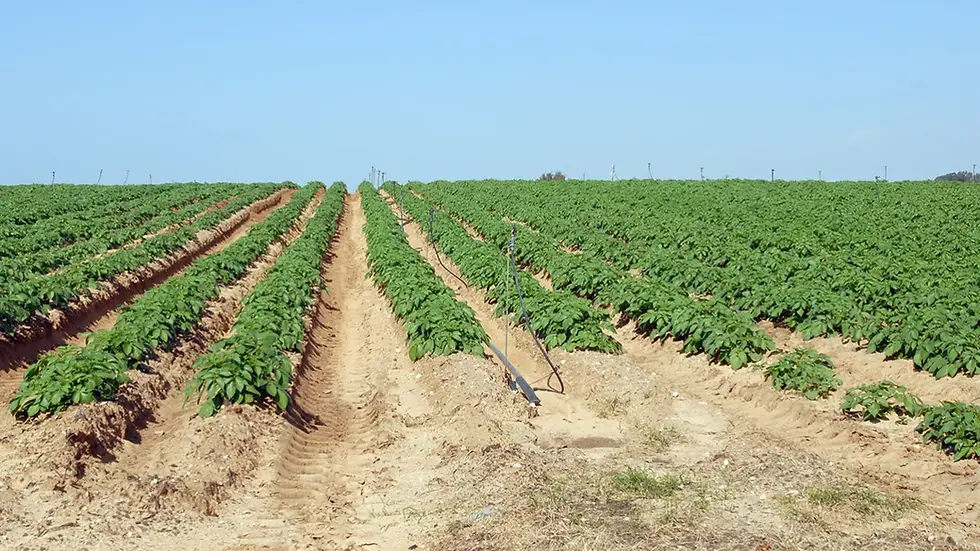Every Year We Must See Ourselves as if We Were There
- Rabbi Amy Eilberg
- Apr 18, 2024
- 3 min read

(Photo: The National Memorial for Peace and Justice, https://legacysites.eji.org/about/memorial/ )
בכל דור ודור חייב אדם לראות את עצמו כאילו הוא יצא ממצרים.
B’chol dor vador hayav adam lir’ot et atzmo k’ilu hu yatsa mimitzrayim.
In every generation, we must each see ourselves as if we ourselves had gone out of Egypt.
This sentence, it seems to me, is the central message of the Haggadah. We delve into the story of the Exodus from Egypt each year not out of curiosity, literary interest, or nostalgia. We reenact the story and immerse ourselves in its words, its music, its tastes and physical sensations in order to experience it—to imagine ourselves there. (When my children were small, we were thrilled when they began to describe the Israelites leaving Egypt in the first person.)
From this principle follows one of the central commands of the Torah, that we are to champion the needs of the stranger, the marginalized, and the oppressed, because we know the soul of the stranger.
We ourselves were there, enslaved by a tyrant in Egypt. This means that when we see someone in our own time suffering from discrimination, dehumanization, or persecution, we must fight for their dignity, because we know in our flesh and in our hearts what it is like to be where they are now.
I discovered another layer of this central text on the recent Conservative/Masorti Racial Justice Pilgrimage to the American South, traveling with 20 Conservative rabbis, cantors, and lay leaders. (Reflections on that trip are here.) On our four-day journey, we learned far more than one can comfortably know about the history of slavery and ongoing racism in America.
At the Whitney Plantation near New Orleans, a working plantation transformed into a museum of slavery, we were led to deconstruct the euphemistic myths of what slavery was. We looked into the dark spaces where the enslaved people were forced to live. We learned about the barbaric treatment they endured. We read first person accounts of what they and their families suffered.
At the Legacy Museum in Montgomery, Alabama, we experienced with excruciating clarity the fact that slavery never ended in America. After Emancipation, slavery evolved, in stages, into Jim Crow laws and racial terror lynching, then into racial segregation, and in our own time, into mass incarceration of African Americans. We witnessed evidence of each of these stages of the unfolding of slavery in vivid and agonizing detail, until we recognized one undeniably continuous timeline.
Encountering these truths, I thought of the central message of the Haggadah: We must always remember that we were there in Egypt, suffering the plight of slaves, and therefore are commanded to devote ourselves to working on behalf of the oppressed in our own time.
So, too, as a white-presenting American, I must always remember that, although my ancestors were not in this country when these appalling systems were created, I have benefited from the system of slavery.
From the time my Jewish family members arrived on these shores, they surely endured antisemitism, as we do to this day. At the same time, we had the privilege of living in a prosperous country that was literally built with the uncompensated labor of enslaved Africans. My family did not take part in inventing these oppressive systems, but we benefit from them whenever we engage with America’s vibrant economy, whose development was heavily dependent on slavery. We profit from the fruits of slavery every day of our lives.
Having come face to face with the horrors of slavery and the systems that succeeded it, I must remember every day that my position in America has been aided by cruel, forced labor, and so I have a debt to repay. I must devote myself to the continuing betterment of the land in which I live knowing that the sacrifice of my Black siblings and their ancestors has never been acknowledged.
As Jews, we must see ourselves as if we were slaves in Egypt. As Americans, we must remember and atone for the ways in which the system that has advanced our journey in the United States has disadvantaged others. As a Jew, I am a descendant of Israelite slaves in Egypt. As an American, I am part of the chain of our national history that includes the horrors of slavery and its aftermath.
Seeing myself in the light of these truths means that I am obligated to help right the wrongs that were done, because I myself am part of the story.
This piece first appeared in "Not-A-Haggadah," a Seder Supplement at the Conservative Movement's digital platform, Exploring Judaism. https://www.exploringjudaism.org/holidays/passover/passover-reflections/every-year-we-must-see-ourselves-as-if-we-were-there/




Comments